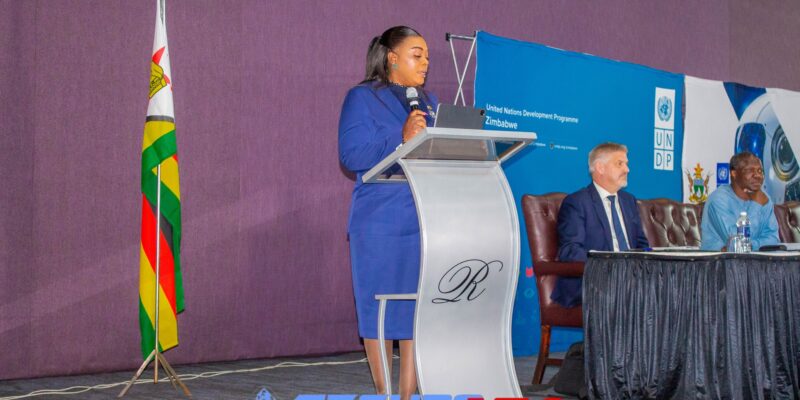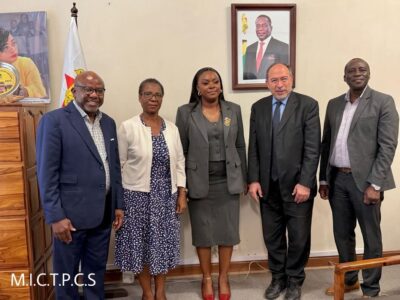Zimbabwe’s Minister of ICT, Postal and Courier Services, Honourable Tatenda Mavetera, articulated a clear vision for Artificial Intelligence (AI), framing it not as a threat but as a fundamental tool for human empowerment and national development.
Officially opening the UNDP AI and Innovation Week 2025 at the HICC Auditorium yesterday, Minister Mavetera consistently positioned Zimbabwe’s strategy in direct contrast to dystopian global narratives, instead aligning it with a philosophy of inclusive and responsible technological adoption.
She cited Microsoft CEO Satya Nadella’s statement, “We are not pursuing AI to beat humans at games … we are pursuing AI so that we can empower every person and every institution … with tools of AI so that they can go on to solve the most pressing problems of our society and our economy”
“This reflects Zimbabwe’s approach: AI as a tool to empower people and accelerate national development,” Minister Mavetera declared, directly linking this global perspective to the country’s local objectives.
According to the minister, the practical application of this philosophy is embedded within the newly advanced National AI Strategy for 2026–2030. One of its five core pillars is explicitly titled Ethical, Inclusive and Responsible AI, ensuring that the drive for technological advancement is guided by a moral compass.
The government is laying a foundational Digital Public Infrastructure (DPI) including national digital identity and secure data platforms to ensure AI can be deployed safely, efficiently and inclusively. This, the Minister stressed, guarantees that all Zimbabweans, whether in rural or urban areas, can benefit from the digital transformation, preventing a new form of technological exclusion.
The focus on empowerment also extends to the workforce. Acknowledging the messy transition predicted by investor Vinod Khosla, where AI will disrupt traditional jobs, the government is aggressively scaling up skilling initiatives. From the 1.5 Million Coders Programme to a forthcoming Advanced Digital Skills Programme, the goal is to equip citizens, especially the youth, to not just use AI, but to build with it and thrive in an AI-augmented economy.














Comments